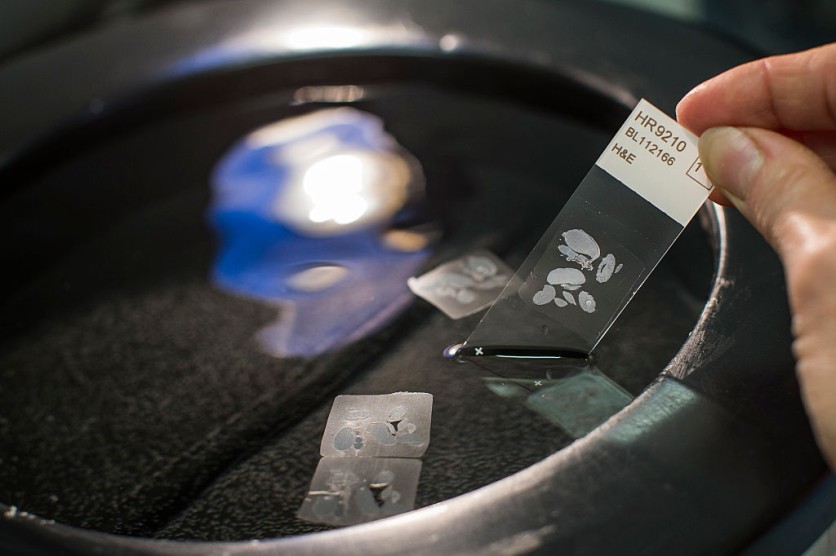Singaporean and UK researchers found a unique method for deactivating tumor-suppressing genes, shedding insight on how nutrition and metabolic disorders like diabetes affect cancer risk.
The researchers discovered that changes in glucose metabolism temporarily disable the BRCA2 gene, which typically promotes cancer growth in animal models, human tissue, and lab-grown human breast organoids, according to a report from Science Alert.
Lead author Li Ren Kong, a cancer pharmacologist at the Cancer Science Institute of Singapore (CSI Singapore), noted that the findings boost awareness of the "impact of diet and weight control" in managing cancer risks.
The result defies Knudson's 1971 'two-hit' idea that cancer requires irreversible inactivation of both tumor suppressor gene copies. Instead, the study implies that glucose metabolic alterations may temporarily impede BRCA2 activity.
Promising Findings
Dr. Ashok Venkitaraman, an oncologist and cancer researcher at CSI Singapore, emphasized the importance of understanding environmental variables and cancer risk in order to develop preventative strategies.
Methylglyoxal (MGO), a byproduct of glucose metabolism, was more harmful to cells that had one broken copy of BRCA2. High MGO levels, especially in diabetes, can hinder DNA repair and cause disease consequences.
The study also discovered that MGO can temporarily block the BRCA2 protein's tumor-suppressing capabilities, causing cancery mutations. This impact was demonstrated in noncancerous cells, breast cancer tissue, and pancreatic cancer mouse models.
The findings are useful, but the researchers recommend bigger clinical samples or animal models to study dietary variables, metabolic problems, and cancer risk. However, MGO levels may enable early identification and prevention.
Venkitaraman stated that HbA1C testing might identify high MGO levels, and that medication and diet modifications could reduce cancer risk related to glucose metabolism alterations.
Notably, the American Cancer Society reported that U.S. cancer diagnoses will top 2 million this year, a major milestone. Despite this worrying trend, cancer death rates have dropped 33% since 1991 due to improved identification and treatment, as well as lower smoking rates.
The research predicts a modest rise in cancer-related fatalities this year, although experts note a change in diagnostic patterns toward younger patients, per USA Today.

A scientist uses a warm water bath to help stick thin tissue sections to microscope slides for analysis, at the Cancer Research UK Cambridge Institute on December 9, 2014 in Cambridge, England.
Colon Cancer Remains a Leading Cause of Mortality
Cancer treatment and care have improved survival rates, however, the obesity pandemic and young adult colorectal cancer remain major issues.
Colon cancer emerged as the top cause of cancer mortality in males under 50 and the second in women under 50. This change emphasizes early detection and screening, with experts advocating frequent testing for those 45 to 75-year-olds.
The study's main author, Dr. Ahmedin Jemal, stresses the need for awareness and screening, especially for high-risk individuals with a family history of colorectal cancer.
Separately, a recent study suggests that average-risk colon cancer patients may delay colonoscopy exams for 10 to 15 years, as per a report from NBC News.
Swedish researchers found that waiting five years after a negative colonoscopy has the same risk of colorectal cancer diagnosis or mortality as the 10-year screening interval, implying that extending the screening interval may prevent nonessential invasive treatments.
The study evaluated national registry data from approximately 110,000 colorectal cancer patients with negative colonoscopies. In a control cohort of nearly 1 million people, identical risks of subsequent colorectal cancer diagnosis or mortality were identified in those tested every 10 years and those screened every 15 years.
Researchers indicate that a longer screening interval might save thousands of colonoscopies for other people but miss colorectal cancer cases and fatalities.
The study's principal author, Dr. Mahdi Fallah, proposes using less intrusive screening modalities 10-15 years after a negative colonoscopy to improve screening accessibility and efficiency.
According to Dr. Fallah, economical and valid screening tests are better than no screening.
Related Article: Chinese Scientists Extend Mouse's Life to Human Equivalent of 120-130 Years Using Blood from Younger Mice


![Apple Watch Series 10 [GPS 42mm]](https://d.techtimes.com/en/full/453899/apple-watch-series-10-gps-42mm.jpg?w=184&h=103&f=9fb3c2ea2db928c663d1d2eadbcb3e52)


